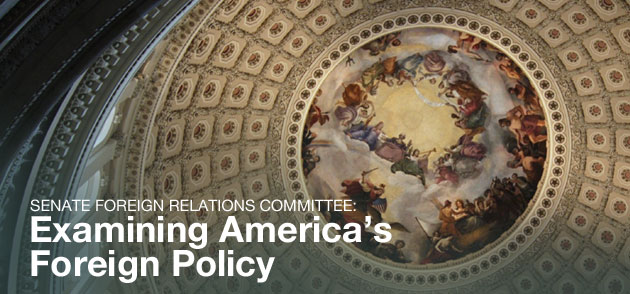
By LYDIA POLGREEN - A report on Sri Lanka to be released next week by the Senate Foreign Relations Committee urges a less confrontational approach to that nation, citing strategic American interests in the region.
The report says that while the Sri Lankan government has been widely criticized for its handling of the war against the Tamil Tigers, who were fighting for a separate state for the ethnic Tamil minority in northern Sri Lanka, the government has also achieved a measure of progress in resettling the conflict’s displaced and rebuilding the war-shattered east of the country.
“With the end of the war, the United States needs to re-evaluate its relationship with Sri Lanka to reflect new political and economic realities,” says the report, a copy of which was obtained by The New York Times. “While humanitarian concerns remain important, U.S. policy toward Sri Lanka cannot be dominated by a single agenda. It is not effective at delivering real reform, and it shortchanges U.S. geostrategic interests in the region.”
The bipartisan report, which was endorsed by Senator John Kerry, the Democratic chairman of the committee, as well as Senator Richard Lugar, the ranking Republican, is being released as the Obama administration is preparing to announce its new policy on Sri Lanka. It also comes as questions persist about what Western countries can do to influence the government there.
Concerns about human rights and humanitarian aid for the people affected by the conflict have dominated the relationship between the United States and Sri Lanka over the past few years as the hard-line government in the capital, Colombo, pressed its military offensive against the Tigers.
The tough strategy of Mahinda Rajapaksa, Sri Lanka’s president, and his two brothers, Gotabaya and Basil, helped defeat the insurgency in May after more than two decades of war. The rebel group used brutal tactics like the use of child soldiers and female suicide bombers. It was also responsible for the assassination of Rajiv Gandhi, a former prime minister of India who was hoping to return to power, in 1991.
Government troops overran a narrow strip of beach where the leaders of the rebel group were pinned down, along with about 300,000 Tamil civilians. Human rights groups have pointed to evidence of an indiscriminate use of heavy weapons by government troops in areas crowded with civilians in the last weeks of fighting. The United Nations documented at least 7,000 civilian deaths in a tally that does not include the last, and probably bloodiest, weeks of fighting.
The government also faced pressure to release nearly 300,000 Tamils it had held in closed camps since the end of the war. Officials said the displaced people needed to be screened to weed out fighters, but conditions in the crowded camps deteriorated as the monsoon rains arrived. On Tuesday , the government said the displaced were free to leave, with some limitations.
Sri Lanka has resisted calls for an international investigation of its conduct of the war, and has dismissed the demands of the Western countries that have bankrolled much of its humanitarian aid effort as imperialism.
Sri Lankan government officials have repeatedly pointed to growing ties between their country and China as a sign that the West’s influence there is on the wane. Mr. Rajapaksa, who is running for re-election in January — and is staking his campaign on the war victory — has accused foreign aid organizations and Western countries of meddling in Sri Lanka’s affairs.
More broadly, government officials have expressed dismay at the barrage of criticism they received abroad after the defeat of the Tamil Tigers. Mr. Rajapaksa portrayed the conflict as part of a global fight against terrorism, and the victory over the Tigers as a model for anti-insurgency military campaigns elsewhere. Sri Lankan officials deny that large numbers of civilians were killed by government troops.
The United States and other Western countries abstained from a vote at the International Monetary Fund in July to lend $2.6 billion to Sri Lanka. The United States has also curbed military aid because of concerns about human rights abuses in the war against the Tamil Tigers.
But Sri Lanka is too important a country to be isolated from the West, the report argues.
“Sri Lanka is located at the nexus of crucial maritime trading routes in the Indian Ocean connecting Europe and the Middle East to China and the rest of Asia,” the report says. “The United States, India, and China all share an interest in deterring terrorist activity and curbing piracy that could disrupt maritime trade.”
© New York Times

















No comments:
Post a Comment